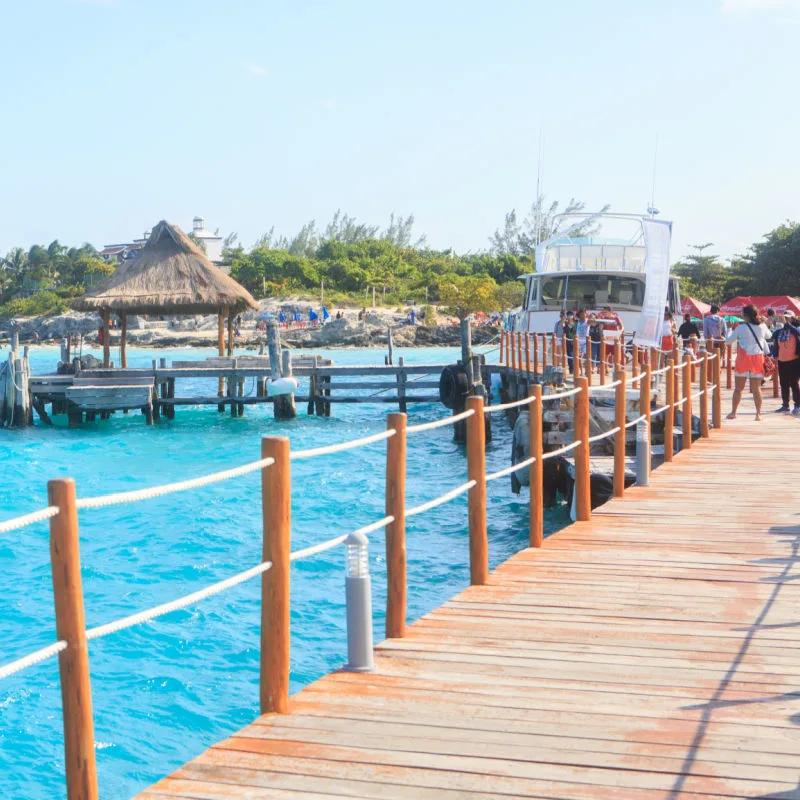Cancun, which rose to stardom as a vacation destination quickly after the first hotel in the destination opened its doors in 1974, has exponentially grown in popularity in the years since.
Just a year after the opening of that first hotel there were about 100,000 tourists that visited Cancun, and now millions visit the popular destination every year.
As tourism has grown, the number of different types of accommodation and tour providers has too, so regulation has become an important consideration for officials.
To protect tourists while visiting, Cancun is cracking down on illegal vacation rentals and tourist service providers by ensuring that they are registered to provide services.

Why Registration Of Vacation Rentals And Tour Providers Is Important
The registration of both vacation rentals, their hosts, and tour providers is important for a couple of reasons.
One is that it allows officials to keep track of business activities and verify they are on the up and up.
Registration is also an important tool for officials to regulate how a business or vacation rental operates to ensure they offer tourists the best service.

How Officials Are Enforcing The Law
The requirement for vacation rental and tourist service providers to register with the State Tourism Registry is not a new one.
The law was initiated in 2022, but what is new is the addition of sanctions for those who do not register.
The sanction that was added is a fine of up to $5,700 for not registering.

Destinations In Which The Law Is In Effect
The law is effective throughout the Mexican state of Quintana Roo.
Quintana Roo is the home state of many destinations in the Mexican Caribbean.
Cancun, Playa del Carmen, Puerto Morelos, Tulum, Cozumel, and Isla Mujeres, among others, all fall into this category.

Which Tourism Providers Are Required To Register
The requirement is that anyone offering accommodations or any type of service to tourists is required to be registered with the State Tourism Registry of Quintana Roo.
This includes but is not limited to restaurants, stores, hotels, travel agencies, vacation rental hosts, transportation providers, car rental companies, tour operators, theme parks, and even beauty salons.
Tourists can visit the situr-Q website here to view a catalog of all registered providers.

The Benefit Of This Law For Tourists
Having a registry of all legitimate providers of tourism services and accommodations helps tourists avoid scams and fraud.
You can easily look up any business in the catalog to verify its legitimacy before visiting a certain establishment or paying for a service.
This not only gives you peace of mind but helps you avoid a lot of heartache and hassle too.

Tips For Booking Accommodations And Services In Cancun
First and foremost you should use the situar-Q catalog to verify a provider before booking, particularly tour and accommodation providers.
There have been cases where tourists have booked with fake companies, hosts, or providers, paid a lot of money, and received nothing in return.
Another way to ensure the legitimacy of accommodation or service providers is to read reviews from past customers.

Why All-Inclusives May Be The Best Way To Avoid Vacation Scams
Booking an all-inclusive resort in Cancun may be the best way to avoid vacation scams.
One reason is that you know that they’re official.
The other reason is that you’ll already have activities included in your stay, and you can have expert concierges book any offsite activities for you, too.
They know best which local businesses will provide you with the best services during your Cancun vacation.
Plan Your Next Cancun Vacation:
Traveler Alert: Don’t Forget Travel Insurance For Your Next Trip!
Choose From Thousands of Cancun and Riviera Maya Hotels, Resorts and Hostels with Free Cancellation On Most Properties
↓ Join the community ↓
The Cancun Sun Community FB group has all the latest travel news, conversations and tourism Q&A’s for the Mexican Caribbean

Subscribe to our Latest Posts
Enter your email address to subscribe to The Cancun Sun’s latest breaking news affecting travelers, straight to your inbox.
